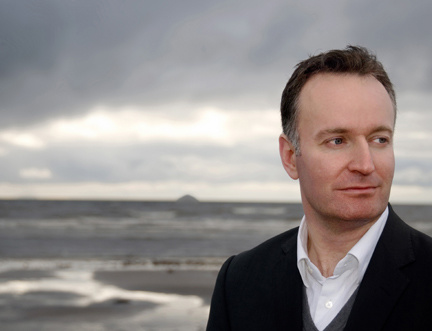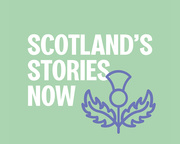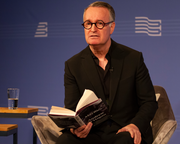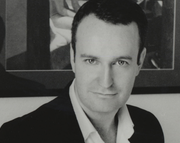More articles Saturday 29 August 2015 11:20am
Andrew O’Hagan accuses European powers of contravening human decency

At his Book Festival event yesterday, author Andrew O’Hagan accused European powers of being “in convention of the most fundamental human decency” by not doing everything possible to save migrants fleeing war and poverty in their home countries. He also revealed that the Ministry of Defence tried to stop him travelling to Afghanistan to research his latest novel.
The Scots writer said that a rising sense of nationalism was getting in the way of an ‘absolute obligation’ to help the influx of desperate people travelling by boat from Libya and Syria to Europe. He said: “When people get possessive and jingoistic, and over-privileged in their sense of what belongs to them and exclusionary as a result, I think it’s a bad day, and there’s a bad day happening all over Europe at the moment, when we’ve watched those people drowning in front of us, I mean literally. And these people are Christians, land-loving Christians, looking into the water and saying ‘Ah, f*** you’, that’s what they’re saying. ‘We have the means to save you, we have the means to rescue you, but we are in convention of the most fundamental human decency by letting you drown’.
“We are Christians, and you have an absolute obligation to put your hand out to these people, and I’m sorry if it makes us uncomfortable to have an influx of people depending on our facilities and our benefits system, I’m sorry, but that’s the world, that’s what it’s like.”
O’Hagan was at the Book Festival to promote his new novel The Illuminations, which follows the twin stories of Anne, an 82-year-old woman with dementia who lives in sheltered accommodation in Saltcoats, Ayrshire, and her grandson Luke, who has served with the Army in Afghanistan.
The writer, who has been critical of British involvement in the war, revealed that when he wrote to the MoD requesting to be embedded with soldiers in Afghanistan his reputation went before him when he was knocked back. “The MoD really didn’t want me there,” he said. “It was like they opened up a second front trying to stop me from seeing the war. When the person got my friendly request to be installed on the front line, they Googled me, and I got a reply saying ‘We’re definitely not letting you go because you’ll only write negative things about the war’.”
O’Hagan said that instead he ‘sneaked in’ with the relief charity Unicef, with which he has a long-standing relationship, and accompanied soldiers under its auspices. He said that it was absolutely necessary to experience ‘the fear’ of being there first hand: “It’s an absolutely tangible fear, on an afternoon, as you’re bumping along a dirt track thinking ‘is this next bump going to be the IED’. I don’t know how many times I said to myself ‘you complete idiot, why couldn’t you just make it up? Why are you here, about to lose your leg for a novel?’.”
He said, though, that as a serious writer he had to “feel the temperature, see the dust, taste the salt on your lips”, adding “there’s things that are in the novel that could never have been there, and it’s to do with the reality of the danger and the absolute physical nature of their day-to-day experience.”
O’Hagan also spoke out out against what he saw as a current culture among literary criticism of ‘rubbish or rave’, especially when it comes to new authors. He said: “It’s either fantastically good and worthy of Tolstoy at his best, or it should be burned. Everyone is so extreme in their view. That wonderful vista in between, where things used to be promising. Remember promising? Nothing ever gets to be promising, a first novel is either Tolstoy or it should be shot. And you think ‘that’s not fair’, what about ‘promising’, what about ‘the next one will probably be better’, ‘they’ll grow, they’ll mature’, and writers very often do.”
O’Hagan, a former film critic, went on to say that he was unhappy with the critical hysteria surrounding Benedict Cumberbatch’s performance as Hamlet in Lyndsey Turner's production of Shakespeare's iconic tragedy. He said that critics had been wrong to attend early performances of the production, before it had time to refine itself.
“The celebrity culture has wiped out some of the common decencies when it comes to this. The critics have almost been in competition to take it down, you know? It’s a play, it’s not a new peace accord at the UN.” He added that the scathing reviews had “said more about the critics than they did about the production”.
Look, Listen & Read







 Major new partnership with Celtic Connections
Major new partnership with Celtic Connections 

